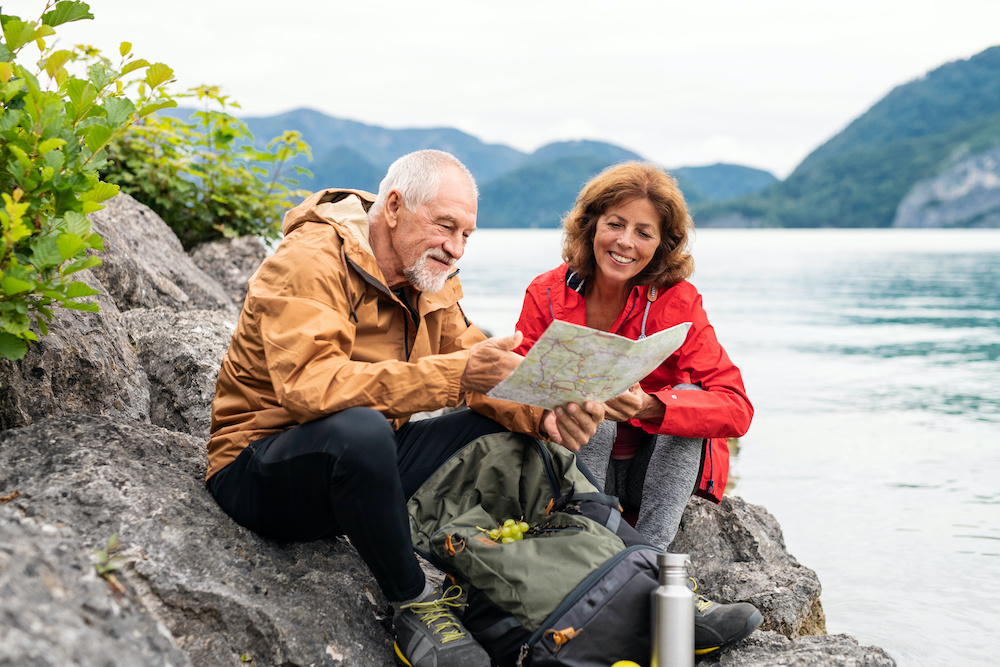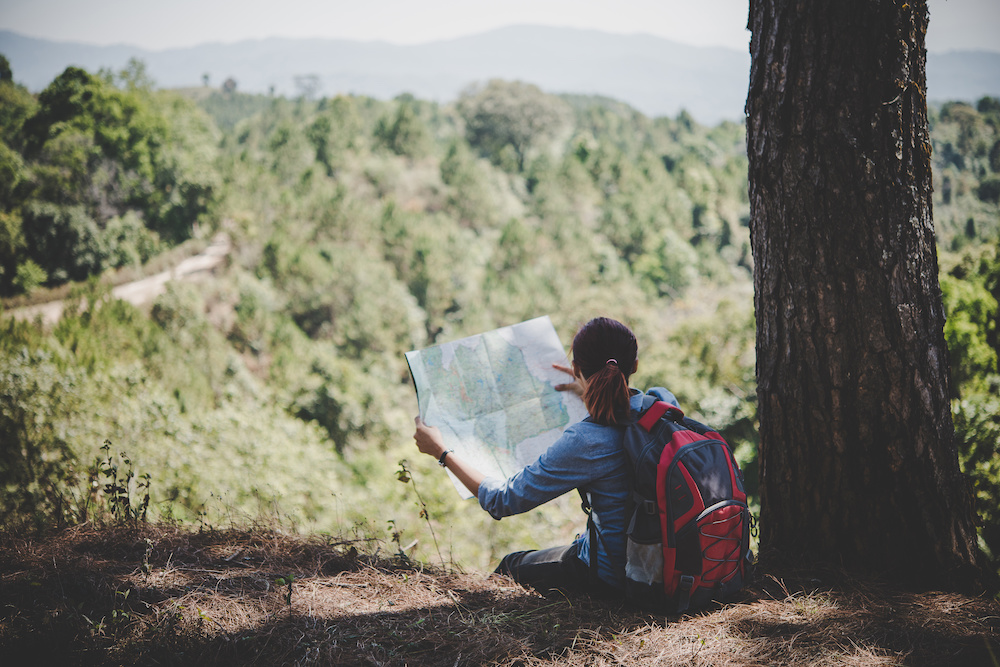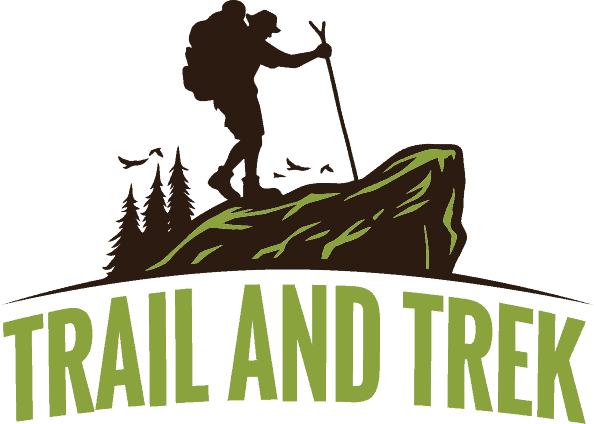
No matter how great the experience is, you cannot deny the stress of planning a hiking trip with your family and friends; in fact, planning a solo hiking trip is tedious.
If it’s your first time doing it, you will surely go through a lot of problems, especially when booking the date.
If you want to know how to plan a hiking trip, we can help you make the process easier and less stressful.
How Do You Plan a Hiking Trip?
Most of you are probably eager to start hiking, but you don’t have any idea how to start.
Here are a few things that you should know to help you get started:
1. Know Your Capabilities
Whether you are traveling alone or planning to go with your family or friends, you need to estimate your capabilities.
It’s good that you want to try a long hike right away, even if it’s your first time, but you may not want to continue the hike once you’ve tried it.
Let's answer two of the most important questions with regards to capabilities so that you don't make the wrong decision.
How Many Miles a Day Should I Hike?
Before you go on a hiking trip, you need to know your mileage limits. As a general rule, you can try 10 to 12 miles if you will start early in the morning.
If the hike starts in the afternoon, five to six miles would be a good limit for you, but this rule is only applicable for mostly flat terrains.
There are a lot of terrains with high elevations, which is what professional hikers usually look for.
If you and your friends or relatives are still beginners and you want to try hiking areas with up and down roads, remove one mile for every 1,000 feet of elevation.
How Long Should I Hike?
You should also consider trail time when hiking. You need to set how much time you want to spend on the trail.
For beginners, 30 minutes for every mile is a good start to allow you to have multiple breaks in between.
For a flat hike, you can try a six-hour loop, and for a trail with elevation, a four-hour loop is a good option for beginners.
2. Find the Right Trails
After identifying how long and far you can hike, the next step is to look for trails that would fit your preferences.
If you have no idea about the trails in your area, here are a few things that you can do:
Search for Popular Hiking Areas
Based on the info you gathered on the first tip, look for nearby trails to start with.
You can easily find hiking areas in your location that are very easy to complete.
By searching on the Internet or joining groups and forums, you can also easily find information about the hiking area you are looking for or one that matches your capabilities.
They usually include the amount of time it takes to finish the trail and the possible terrain that you will encounter once you’re there.
Look for Interesting Sceneries
Most people want to start hiking because they want to see the beautiful scenery.
Since more and more hikers share their stories and pictures on social media, it is easier for a person who doesn’t hike to see amazing sceneries.
You can use that as inspiration when searching for a hiking area. If you want to see a beautiful sunset, a waterfall, or a clear river, you can be more specific about what you want.
Look for Existing Trails
You probably want to experience a thrilling adventure by looking for a new hiking trail, but this is only advisable if you are a seasoned hiker.
It's best to consider the trails that are popular with hikers because it will be very dangerous to try out a new trail. You might get lost in the process or encounter unknown dangers.
Additionally, you need to consider the people who are with you.
3. Look for Backcountry Campsites
You can find very long trails, which would take a few days to complete. These trails are a good choice for beginners since you don’t have to think about the long hike.
That said, you need to look for backcountry campsites where you can stay the night.
That's because you cannot camp in the wild as it is very dangerous. Here are some things to consider when choosing a campsite:
Water Access
When you are camping out, you need to make sure that the campsites have a reliable water source.
You'll stay there the whole night, so you need water for cooking, drinking, brushing your teeth, and taking a bath.
You cannot carry a lot of water when hiking, so if you plan to stay for a couple of days to complete the trail.
Leave No Trace Principle
This is a set of guidelines that every hiker should know. You should never damage the land in any way.
You also need to pack all your wastes and throw them in the garbage bins in the area.
You also shouldn't disturb the plants or the animals as they are all protected. You just have to make sure that the area would look the same as when you first arrived.
Beware of Critters
You don’t need to worry about animals going to the campsite, but critters that would continuously bite you throughout the night.
It is better to research about the critters and creatures often found in the area. That way, you can come prepared to help prevent bites.

4. Know What to Take On a Hike
A lot of people are asking about what to take on a hike. Here's a quick list of some of the things you need to bring with you:
Backpack With a Hip Belt
Apart from wearing the best hiking boots, you must also make sure you have the right backpack.
The hip belt feature of the backpack will ensure you carry the bag with ease. It will also make the bag easier on your back even if it's full.
In terms of backpack size, it should depend on the number of items you will bring; the more things you need, the bigger the bag.
You also need a bigger bag if you plan to spend a night or two on the trail.
Personal Essentials
These are all the things that you need to keep your body clean and fresh, including soap, toothbrush, toothpaste, and facial wash.
Even if you are in the wild, you can still take a bath. Campsites have restrooms, so you don’t need to worry.
You can also consider bringing other personal items, such as lotion to prevent bug bites.
Food
You only need to bring enough food to get you by. Don’t bring too much since food would only make your bag heavier.
Survival Essentials
Even though you've researched the trail or place, you still need survival gear in case of an emergency.
This includes a whistle, a knife, matches, emergency kindling, a space blanket, a repair kit, and duct tape.
Clothing
Not only should you bring a change of clothes if you're overnight hiking or hiking for a few days.
Make sure you always bring extra clothes with you because you will be sweaty during the hike.
Final Preparations
Now that you're all set for your hike before you leave, make sure that you check the weather forecast.
You can do this a few days before the target date to help you know if it is a great day to hike or you need to cancel your trip.
You also need to check the trail conditions because you don’t want any kind of problem once you are already on the hike.
Always let someone know that you are going on a hike. It is better to leave an itinerary to your friends or relatives.
This is a safety tip since a lot of things can happen on the trail. At least if something happens to you or you got lost, someone will know where you are.
FAQs About Hiking
1. How much does a hiking trip cost?
A hiking trip doesn’t cost too much since you will be staying outdoors.
The cost would depend on what type of food you plan to bring and the amount of time spent on the trail.
2. Is it okay to hike everyday?
No. You need to give your body time to heal. You have to remember that hiking involves all the parts of your body, so if you force yourself to hike daily, you will surely get sick.
3. Is hiking good for weight loss?
Yes, hiking is a full-body workout. It would be easier to lose weight if you can combine this with a proper diet.
If you want to do this as a type of workout every weekend, you should know how to plan a hiking trip.
Planning a Hiking Trip Is Worth It
The planning stage is very demanding and stressful since you need to prepare a lot of things. If it is your first time, the difficulty would be double since you don’t know what you should do.
Nonetheless, effectively planning a hiking trip ensures safety and preparedness.
You can consider all of the tips mentioned above to have stress- and hassle-free planning.
